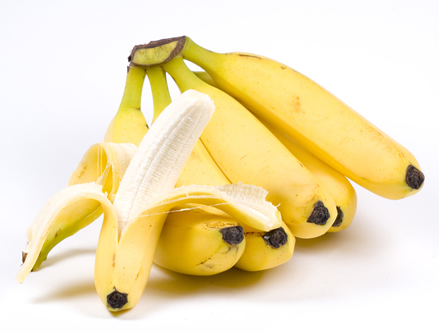Free Shipping - 48hrs Only | Use Code: FREESHIP
Ends 26/04 11:59PM AEST Min spend $79
What is Potassium?
Potassium is an essential macro mineral that is needed for proper functioning of the body. It is an electrolyte and is responsible for a range of processes such as pH balance, nerve and muscle control, and carbohydrate metabolism.
Where Does Potassium Come From?
Potassium is in pretty much all living matter. Rich sources include meat, fish, dairy, citrus fruits, vegetables, and of course bananas.
Potassium Benefits
Other than the fact that potassium is needed for life, it does have some applications to bodybuilding and exercise.
Potassium Benefits for Bodybuilding & Exercise
One of the best known relationships between potassium and exercise is that potassium is an intracellular electrolyte. Electrolytes are needed for muscle and cell function and aids in rehydration. More information about this can be found in our "Electrolytes" article. As you sweat, such as during periods of extended intensive exercise, you lose electrolytes such as sodium and potassium (Sawka et al, 2000). This is especially important in hot and humid environments, where the demand for potassium as a result of exercise increases dramatically (Lane et al, 1978). Furthermore, losses of electrolytes may lead to painful muscle cramps. Supplementing with electrolytes such as potassium and sodium may help to prevent or delay the onset of muscle cramps (Jung et al, 2005). It is therefore important to maintain potassium and electrolyte levels during intense exercise to ensure performance does not suffer.
Potassium has been shown to contain vaso-dilating properties, that is, it widens blood vessels (Kjellmer, 2008). This may be beneficial for increasing pump during workout, and resulting in increased endurance as a result of better blood circulation.
 Potassium Benefits if Medicating
Potassium Benefits if Medicating
Many drugs cause an increased loss of potassium, resulting in increased demand. For example, some pharmaceutical diuretics are sometimes used to eliminate excess water to give a more defined appearance to muscles. Certain steroids also can also cause an increased loss of potassium (NIH, 2010). In such cases, an increased potassium intake will be beneficial to avoid the onset of potassium deficiency.
Potassium Negatives and Side Effects
Potassium is absolutely vital for life. It is safe to consume and for healthy people, there are no side effects associated with consuming potassium in their diet at recommended levels. However, like other minerals, it is possible to have too much potassium. This causes a condition known as hyperkalemia, which results in nausea, irregular heartbeat, and fainting (NIH, 2011). Dietary potassium is also a problem for those with kidney disease receiving dialysis (NIH, 2010). It is therefore recommended that such individuals ensure they eat a low potassium diet.
Recommended Doses & Ingredient Timing
In general, the daily required intake of potassium for adults is 4.7 g/day (NIH, 2010). However, this may be significantly higher for those living in hot and humid climates and undergoing intense exercise (Jung et al, 2005). There is no strict timing for consuming potassium. It can be done so during meals and spread throughout the day. However, it is recommended that potassium be consumed before and during an intensive workout session to maintain electrolyte levels.
Potassium Supplements
Potassium can be found as a stand-alone mineral supplement. These are typically used to treat people with potassium deficiencies. It can also be found in a wide range of supplements such as sports drinks, pre workout supplements, intra workout supplements, post workout supplements, and multivitamins.
Stacking Potassium
Potassium can be stacked with pretty much anything and should be consumed as a part of a balanced diet.
Kjellmer (2008), The Potassium Ion as a Vasodilator during Muscular Exercise. Acta Physiologica Scandinavica, 63: 460-468
Lane et al (1978), Effect of physical activity on human potassium metabolism in a hot and humid environment. Am J Clin Nutr, 31: 838-843
NIH (2010), Potassium in diet. MedlinePlus
NIH (2011), High potassium levels. MedlinePlus
Jung et al (2005), Influence of Hydration and Electrolyte Supplementation on Incidence and Time to Onset of Exercise-Associated Muscle Cramps. J Athl Train, 40: 71-75
Sawka et al (2000), Fluid and Electrolyte Supplementation for Exercise-Heat Stress, 72: 564S-572S
